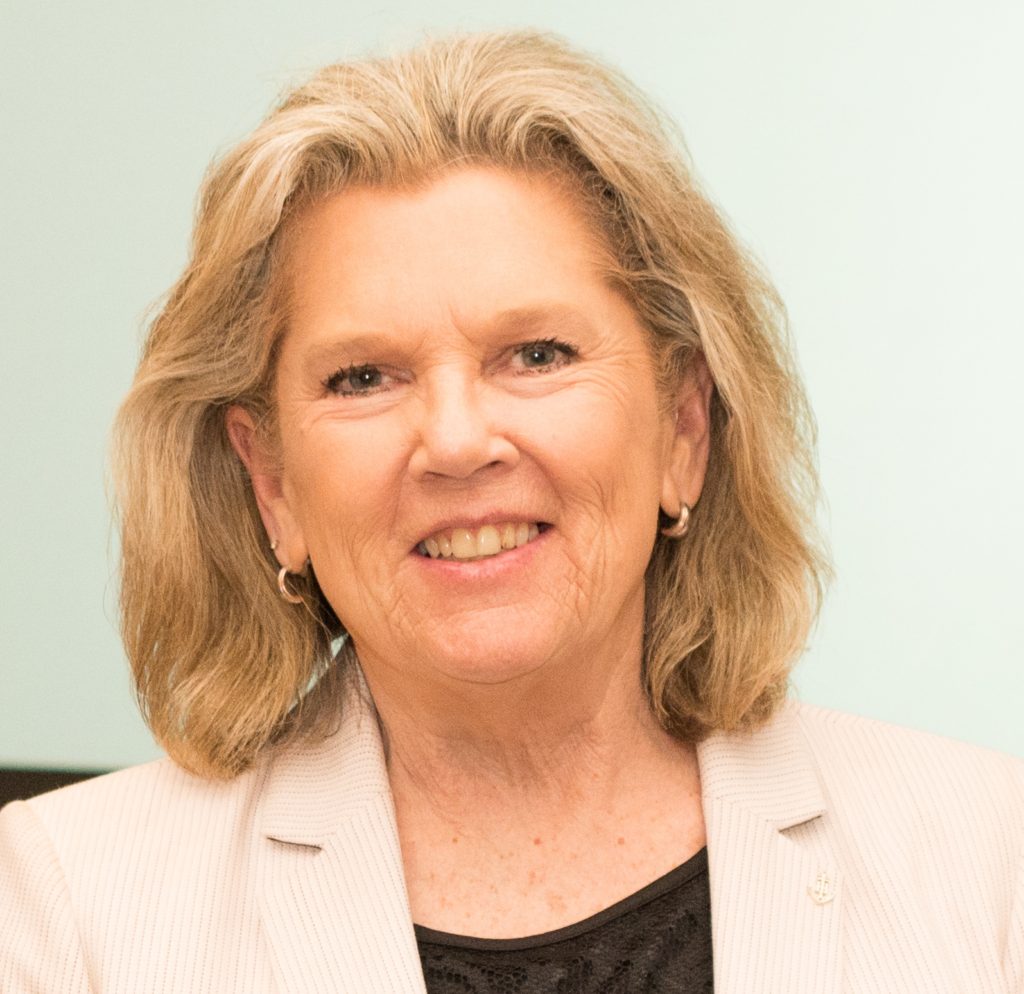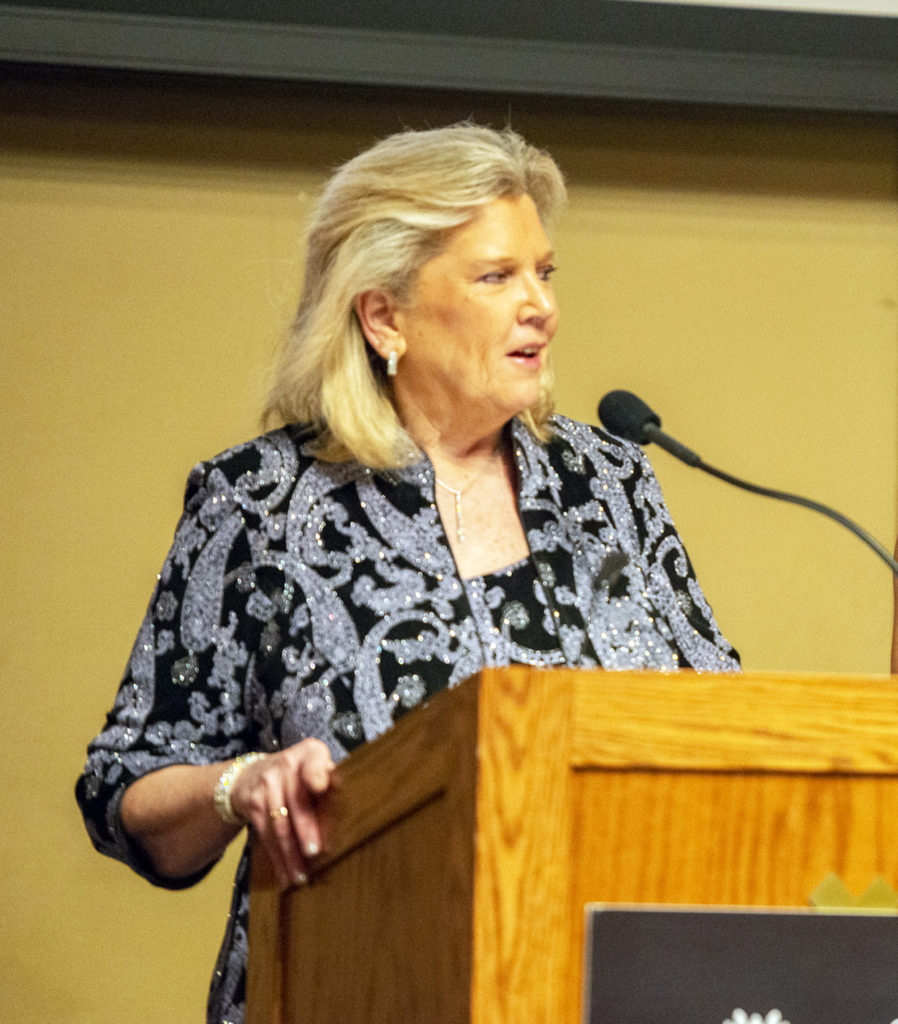
Leading in the time of COVID is not an easy feat for anyone managing any kind of organization or business.
For Susan Kidder, chief executive officer of Safe Connections, in some ways it’s even more difficult because she knows COVID presents a whole new set of unique challenges for the nonprofit’s clients.
Let’s face it, almost everyone has some kind of hardship during this pandemic. It might be financial; it might be medical; it may be mental or emotional; even general feelings of well-being are threatened, but for those who are victims of domestic violence, being at home for extended periods of time with an abuser makes the situation even more dangerous.
But, as Kidder said, everyone deserves to feel safe, and that’s what drives her in her role at Safe Connections, and fuels her dedication to prevent and end domestic and sexual violence while helping survivors reclaim their lives.
Founded in 1976, the organization’s name was changed a few years ago from Women’s Self Help Center to Safe Connections, to better reflect its services and clientele. It holds the distinction of being the oldest, largest and only nationally accredited nonprofit in the region dedicated solely to preventing and ending domestic and sexual violence.
Kidder joined Safe Connections in 2007, relocating to St. Louis from Chicago. She grew up in Springfield, Illinois, earned a bachelor’s degree from Illinois State University and a master’s degree from Eastern Illinois University. She holds a certificate in business management for nonprofit leaders from Washington University Olin Business School and is a graduate of Leadership St. Louis. She now has more than 30 years of experience in nonprofit leadership, specializing in disabilities, education and social justice.
She is a frequent presenter on domestic and sexual violence, human rights, social justice and nonprofit leadership, and is involved in numerous organizations, including the St. Louis Forum, the St. Louis Ending Violence Against Women Network, the National Women’s Political Caucus, the St. Louis Children’s Service Coalition Leadership team, the Behavioral Health Network board of directors, the Better Business Bureau nonprofit advisory committee and the United Way of Greater St. Louis Women’s Leadership Society cabinet. In 2017, she was honored by the Missouri Women’s Network for her leadership in advancing women’s equality.
Kidder recently shared some of her thoughts, leadership strategies and goals as Safe Connections’ CEO with Gazelle.
How has COVID and shelter-in-place mandates impacted victims of domestic violence?Kidder: The pandemic hasn’t caused domestic violence, but survivors are in the same environment with their abusers, making it a challenge to call for help and a challenge to reach out because they can’t find privacy to do so. This has made an enormous impact on the victim because they feel even more isolated. Domestic violence, at its roots, is a pattern of intentional abusive behavior, and someone tries to gain and maintain control over another person. So, while the pandemic hasn’t “caused” domestic violence, it has increased the impact in frequency and intensity of the pattern that already existed. Many people have lost their jobs or are working from home, so there is more time that they are together with no privacy. And the most dangerous time is when the survivor has decided to leave for good, because the abuser knows they are losing control.
How have you met the new challenges?
Kidder: The numbers for those calling for help have gone up and down since the beginning of COVID. In fact, in March the numbers were down 19% from March of 2019. Since then, the number has drifted upward. What we worry about is that people are simply unable to call. We immediately launched a media campaign for all platforms as a call-to-action for survivors who are sequestered with their abuser, and to inform people of the increased danger and intensity. We wanted everyone to know that if they are concerned about someone they love, someone they work with, a neighbor … they can call us, and we can help that person. In the next few weeks, we plan to have a “texting” feature available on the hotline, so if someone is unable to make a call, they may be able to text.
What can you do to empower women in these situations, especially now?
Kidder: We can help the survivor with safety planning, and there are strategies that we aren’t able to advertise for fear of alerting abusers. If they are able to call, we always tell them to delete call history, in case the abuser looks at their phone. We also do prevention education at the middle school, high school and college levels, which is also available for those involved in Greek life, as well as faculty and staff. We want to prevent domestic and sexual violence before they happen, if at all possible, so the education is about developing healthy relationships and how to exit those that are not healthy.
It is easy for anyone to become depressed or feel scared during this time. How are you able to help clients work through that?
Kidder: We have totally transitioned to tele-health and tele-therapy for therapy sessions and support groups. Our therapists have advanced degrees, and are specialized to help survivors of domestic and sexual abuse. And our programs are free of charge. We believe in 100% barrier-free services so survivors know they are never alone.
Safe Connections is known for having an open and approachable culture. How were you able to achieve that and how do you maintain it – especially in these times of upheaval?
Kidder: We are a collective. I work with the staff, the board and donors, and we are all focusing on humanity, honoring and respecting survivors, and letting them know that we are that “safe place.” They will be cared for, and we are totally inclusive of all genders and sexual orientation. And our work is ongoing. As far as the staff of 48, we’re unified – even while apart (working from home) – finding solutions together and focusing on the well-being of our clients. But staff members cannot pour from an empty cup, so we try to make sure to always support one another, too.

How has the pandemic affected Safe Connection and its programs from a financial perspective?
Kidder: Our funding is diverse – and that’s intentional – so we know even if one avenue is affected, we can continue to help our clients. Funding comes from our amazing donors and supporters, the United Way, multiple government contracts – city, state and federal, a private foundation, corporate support, and our fundraisers, like our Together event in the spring, and the Lotus Ball in the fall, and other fundraisers, like Our Young Professionals group, who also hold a trivia night.
Kidder said that domestic and sexual violence are two of the most unreported crimes because people are afraid to tell; there is a fear of being blamed for what happened; and a fear of not being believed. But, Kidder stressed, this type of treatment or assault is never the victim’s fault, no matter what. Around 90% of the victims of these crimes are women and girls; 10% are men and boys, and those identifying as LBGTQ.
In 2019, Safe Connections helped 20,000 people, serving the entire St. Louis metropolitan region – in both Missouri and Illinois. There is a 24-hour crisis helpline available at (314)531-2003 for those who need help or know someone who does.
Safe Connections is located at 2165 Hampton Ave., St. Louis, MO 63139. For more information, visit safeconnections.org.





